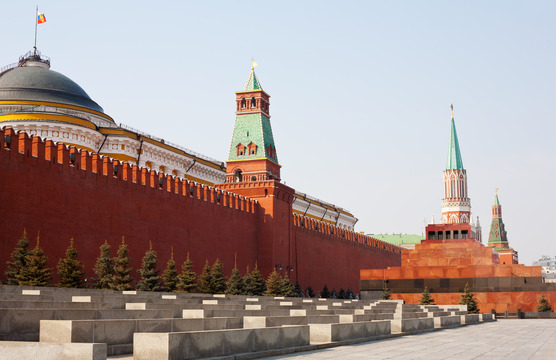Russian President Vladimir Putin is again increasing pressure on Radio Free Europe/Radio Liberty (RFE/RL), where I served briefly as president in December 2020-January 2021. I had worked also indirectly for RFE/RL from 1993 to 2003 in Munich Germany and at their current headquarters in Prague as International Broadcasting Bureau (IBB)-Broadcasting Board of Governors (BBG) regional Eurasia marketing director. Toward the end of my earlier stay in Prague, I saw the same tactics of intimidation and disinformation carried out by the FSB secret police against independent radio and television stations in Russia which wanted to use Radio Liberty (Radio Svoboda) and Voice of America (VOA) programs as I see now being used by Putin’s propaganda machine against RL journalists, the stations management, its parent federal agency in Washington, the U.S. Agency for Global Media (USAGM), members of the U.S. Congress and their staff and the new Biden Administration.

In my 2006 analysis published originally by the Blogger News Network under the title “Neglect of Media Freedom Issues in Russia Contributed to Murder of Russian Journalist Anna Politkovskaya,” I pointed out how the Russian authorities took advantage of the lack of interest and concern on the part of the George W. Bush Administration and forced Radio Liberty and Voice of America affiliates to stop using programs designed to provide uncensored news and to counter authoritarian propaganda from the Kremlin and its media.
Confident that the Bush Administration is not serious about criticizing the crackdown on the media, the Kremlin moved against independent radio and television stations using VOA and RFE/RL news programs. The Washington Post reported in July [2006] that due to the pressure from Russian government regulators, the number of stations rebroadcasting VOA material was reduced from 42 in 2005 to only five in 2006, while the number of RFE/RL affiliates declined from 30 to four. Since Vladimir Putin was elected president in 2000, all major national television channels in Russia have been brought under state control or shut down.
Neglect of Media Freedom Issues in Russia Contributed to Murder of Russian Journalist Anna Politkovskaya
Published by Blogger News Network on October 12, 2006
By Ted Lipien
FreeMediaOnline.org Dublin, CA
Mixed signals from Washington have helped President Putin’s crackdown on independent media in Russia and may have contributed to the recent slaying of a prominent investigative Russian journalist Anna Politkovskaya. While the Bush Administration reacted immediately with a strong condemnation to the execution-style murder, Washington’s neglect of the threats to media freedom in Russia in recent years may have played a role in encouraging the atmosphere of lawlessness in which Russian officials have been dealing with independent journalists who challenge President Putin’s policies. One of the clearest signals that the Bush Administration has weakened its support for media freedom in Russia was the recent decision that would force Voice of America (VOA) to stop all of its Russian-language radio broadcasts.
Human rights organizations noted that there was no immediate reaction to Anna Politkovskaya’s murder from President Putin or from any of his top aides. According to Radio Free Europe/Radio Liberty, there were no high-ranking Russian officials attending her funeral in Moscow on Tuesday. Former Soviet President Mikhail Gorbachev, a shareholder in the Novaya Gazeta newspaper, for which Anna Poliktovskaya worked as a reporter, called the killing “a savage crime and a blow to the entire democratic, independent press.
Politkovskaya angered the Russian establishment by her reporting of killings, torture and other human rights violations by the Russian forces in Chechnya. While there is no proof of any high-level Russian government complicity in her murder or the murders of numerous other journalists in Russia in recent years, involvement of lower-level officials and security services in many of these cases is widely suspected.
It took President Putin until Tuesday, three days after Politkovskaya’s death, to publicly react to the murder and to suggest that unnamed fugitives from Russian justice may have wanted to sacrifice someone to create a wave of anti-Russian sentiment. Putin downplayed Politkovskaya’s importance by saying that “she had minimal influence on political life in Russia.” He called the murder “a dreadful and unacceptable crime that cannot be allowed to go unpunished.”
Pro-Kremlin electronic media speculated that Politkovskaya’s murder had been ordered by anti-government forces hoping to spark anti-Putin demonstrations similar to the Orange Revolution in Ukraine. On Tuesday, the English-language web site of state-financed Voice of Russia had on its home page nine articles, out of which seven dealt with political scandals and economic problems in the United States and Great Britain, including one titled “America Is Heading Toward Bankruptcy.” There was no report or analysis of Politkovskaya’s murder.
Observers of the Russian media point out that the Kremlin has been responsible for an unprecedented crackdown on independent journalists and media outlets which dare to criticize President Putin. They also point out that the Russian authorities have not solved the vast majority of the cases of the murdered journalists. According to the international Committee to Protect Journalists, Russia is the third deadliest country in the world for journalists over the past 15 years, behind only the conflict-ridden countries of Iraq and Algeria. A new CPJ report found that 42 journalists had been killed in Russia since 1992.
The Bush Administration’s mixed signals to Russia on the issue of media freedom may have encouraged those within the Putin camp to continue with their policies of silencing independent journalists. Desperate to secure Moscow’s cooperation in dealing with the war on terror, Iraq, Iran and North Korea, the Bush Administration has muted its criticism of the Russian government on human rights and media freedom violations. Yet despite these efforts to appease President Putin, he has offered the Bush Administration very little support. At the U.N. and in bilateral discussions, Russian diplomats have effectively sabotaged some of the key U.S. initiatives to contain nuclear and terrorist threats.
At the same time, the Putin government continues its domestic crackdown on independent media and nongovernmental organizations working to defend human rights. In doing this, President Putin seems to be enjoying wide public approval within Russia for his authoritarian style of government. Even Mikhail Gorbachev, the author of perestroika, said recently that freedom of the press is not being stifled in Russia under Putin despite some “worrying tendencies.” According to Gorbachev, this viewpoint is shared by most Russians who also disagree with frequent accusations that democracy in Russia is being suppressed.
During a visit to St. Petersburg in July, President Bush said at a joint press conference with President Putin that he fully understood the need for “a Russian-style democracy.” It was a clear indication that the White House decided to accept President Putin’s concept of “sovereign democracy,” which – according to Putin’s aides – is meant to replace Western democratic models. The primary purpose of the Kremlin’s promotion of this policy is to resist any U.S. and other Western attempts to support human rights organizations and independent media in Russia.
At the time of Mr. Bush’s and Mr. Gorbachev’s comments on the state of Russian democracy, Ted Lipien, president of FreeMediaOnline.org, a California-based nonprofit organization supporting media freedom worldwide, warned that minimizing of the threat to independent media in Russia may encourage the Kremlin to impose further restrictions on Russian journalists.
Earlier this year, the Administration proposed its 2007 fiscal year U.S. international broadcasting budget which called for the total elimination of Voice of America radio broadcasts in Russian and the reduction of Radio Free Europe/Radio Liberty (RFE/RL) Russian-language radio programs. The budget proposal was endorsed by the bipartisan Broadcasting Board of Governors overseeing U.S. foreign broadcasts, even though some individual board members, both Republicans and Democrats, were strongly opposed to this idea. There was also opposition to the proposed broadcasting cuts within the State Department in Washington, the U.S. Embassy in Moscow, and among many members of Congress. Independent journalists and human rights organizations in Russia also expressed their dismay.
Confident that the Bush Administration is not serious about criticizing the crackdown on the media, the Kremlin moved against independent radio and television stations using VOA and RFE/RL news programs. The Washington Post reported in July [2006] that due to the pressure from Russian government regulators, the number of stations rebroadcasting VOA material was reduced from 42 in 2005 to only five in 2006, while the number of RFE/RL affiliates declined from 30 to four. Since Vladimir Putin was elected president in 2000, all major national television channels in Russia have been brought under state control or shut down.
The Bush Administration’s and BBG’s neglect of media freedom issues in Russia and the rest of Eurasia is closely tied to the war in Iraq and the war on terror. The money saved from shutting down Voice of America Russian radio broadcasts was to be used to pay for more U.S. television and radio programming to the Muslim world. Many members of Congress, however, rejected the explanations provided by the White House and the BBG as short-sighted and ill-informed considering Russia’s nuclear status, President Putin’s move toward authoritarianism and his crackdown on independent media.
The Congress may yet restore the funding for VOA and RFE/RL radio broadcasts in Russian before these cuts go into effect. The proposal to stop Voice of America radio programs to Russia and to other countries in the region is a serious blow to free media and a gift to dictators and authoritarian regimes. If implemented, this move would further reduce free flow of information and would give even more encouragement to those who murder and silence independent journalists like Anna Politkovskaya.
This article was originally published by Blogger News Network on October 12, 2006
